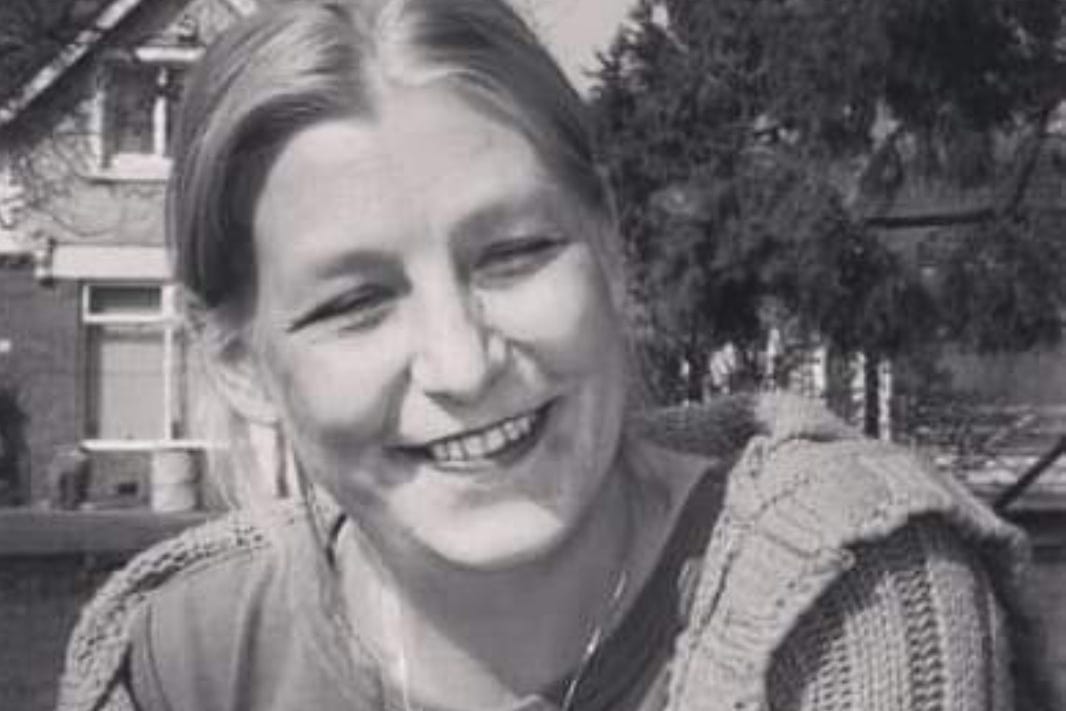Dawn Sturgess’s condition ‘unsurvivable’ when paramedics arrived, inquiry told
The 44-year-old died on July 8, 2018 after she was exposed to Novichok, which was left in a discarded perfume bottle in Amesbury, Wiltshire.

Your support helps us to tell the story
From reproductive rights to climate change to Big Tech, The Independent is on the ground when the story is developing. Whether it's investigating the financials of Elon Musk's pro-Trump PAC or producing our latest documentary, 'The A Word', which shines a light on the American women fighting for reproductive rights, we know how important it is to parse out the facts from the messaging.
At such a critical moment in US history, we need reporters on the ground. Your donation allows us to keep sending journalists to speak to both sides of the story.
The Independent is trusted by Americans across the entire political spectrum. And unlike many other quality news outlets, we choose not to lock Americans out of our reporting and analysis with paywalls. We believe quality journalism should be available to everyone, paid for by those who can afford it.
Your support makes all the difference.Dawn Sturgess’s condition was “unsurvivable” by the time paramedics arrived on scene, a medical expert has told an inquiry looking into her fatal poisoning by Novichok.
The 44-year-old died on July 8, 2018 after she was exposed to the nerve agent, which was left in a discarded perfume bottle in Amesbury, Wiltshire.
Her death followed the attempted murders of former spy Sergei Skripal, his daughter Yulia and then-police officer Nick Bailey, who were poisoned in nearby Salisbury in March 2018.
All three survived, as did Ms Sturgess’s boyfriend Charlie Rowley, who had unwittingly given her the bottle containing the killer nerve agent.
The inquiry in central London heard the cause of Ms Sturgess’s death was a hypoxic-ischaemic brain injury as a result of cardio-respiratory arrest caused by Novichok nerve agent poisoning.
Hypoxia in the brain is caused by a lack of oxygen and ischaemia by a lack of blood flow.
Dr Jasmeet Soar, who works in intensive care medicine and is a consultant at Bristol’s Southmead Hospital, explained that the effects of Novichok, if not treated “rapidly”, can lead to a “vicious circle of the muscles getting weaker”, including muscles in the chest and diaphragm which are the mechanisms by which we breathe.
After that period of time, even if you can restart somebody’s heart you are not going to survive cardiac arrest because of irreversible hypoxic-ischaemic brain injury
He said failing to breathe leads to falling blood and brain oxygen levels, which can result in unconsciousness and eventually in the heart stopping.
Once the heart stops beating, the brain is starved of oxygen and is “dying very slowly”, the doctor continued.
He and another medical expert, Professor Jerry Nolan, gave evidence on Wednesday and estimated that Ms Sturgess did not receive CPR treatment for almost 10 minutes following cardiac arrest.
Prof Nolan, a consultant in anaesthesia and intensive care medicine, said: “After that period of time, even if you can restart somebody’s heart you are not going to survive cardiac arrest because of irreversible hypoxic-ischaemic brain injury.”
He said in his opinion, Ms Sturgess’s condition was already unsurvivable at the point paramedics attended.
Prof Nolan also agreed that whatever treatment she was given by paramedics or hospital staff, it would not have made a difference as to whether she survived.
In a report, the pair concluded Ms Sturgess’s prolonged period of cardiac arrest caused severe irreversible hypoxic-ischaemic brain injury and meant she would have died in hospital.
They also found she had a brain haemorrhage during her intensive care stay that was a complication of her brain injury.
The consultants wrote: “In our opinion, in her circumstances she had no possibility of surviving to leave hospital.
“We note that a decision was made to withdraw life-sustaining treatments based on her clinical circumstances and her family stating that Dawn Sturgess ‘would not want ongoing treatment in the face of significant brain damage. They feel that Dawn died at home last week’.”
They further concluded any actual or perceived delays in starting treatments for Novichok poisoning did not influence Ms Sturgess’s survival and that the treatment she received at the scene and in hospital was of a reasonable standard.
Jesse Nicholls, asking questions on behalf of Ms Sturgess’s family, showed the inquiry drafts of documents being considered by the Department of Health on the risk of a secondary incident following the earlier Salisbury poisonings.
He highlighted one of the ways authorities considered a secondary incident could occur as being “accidental discovery of discarded agent by humans”, which he said was “unfortunately the awful reasonable worst case scenario that did happen to Dawn Sturgess”.
Asked if provision of that information to clinicians may have been helpful, Prof Nolan said: “I can only say that it might have done but as I say it’s speculation on my part.”
Dr Soar explained Ms Sturgess was likely the only victim of the poisonings who had a cardiac arrest because she was probably exposed to a relatively large dose of Novichok compared to Mr Rowley and the Skripals.
He told the inquiry that, according to Mr Rowley’s interviews, Ms Sturgess sprayed the perfume on to her wrists whereas he spilt some on his hands which he then washed.
“Unfortunately she unwittingly applied it in a deliberate manner and sprayed it on herself on her wrists… as opposed to had accidental or a more touch type contact with it,” Dr Soar said.
He also said she likely would have inhaled aerosol components of the agent.
The inquiry continues on Thursday.